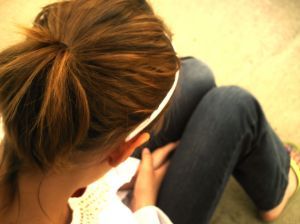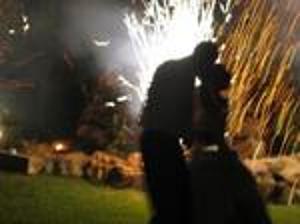His Girl Friday (1940) is predominantly about the choices that need to be made in order to find a sense of happiness. In Stanley Cavell’s essay he explains the nature of the relationship between Hildy and Walter. He talks about adventure against insurance, a sense of reprieve within that world, and the premiss of romance. All three of these subjects can be found represented in the relationship between Hildy and Walter and their search for adventure.
Cavell explains the journey of self realization for Hildy throughout this essay and I have to say that I highly agree with all of his arguments. What’s interesting in this film is the recreation of a type of adventure in order to feel alive in their relationship. The dynamic between these two characters is very interesting and how they play and feed off one another is very manipulative to the ideal Hollywood outcome.
Hildy subconsciously wants the justification that Walter wants her back, and Walter very obviously, wants Hildy back for himself. I feel, we as an audience, emotionally invest ourselves into both of these two characters (Hildy and Walter) and not just one. Just as they need each other in the diagesis of the film, the audience needs them to be together as well. This delivers the feeling of adventure to both our characters and the audience. How and what will bring these two back together?
What we first must understand is Cavell’s interpretation of the remarriage comedy. “Then the issue of these comedies is how we are given to understand the relation of the pair we predominantly care about to this surrounding world, how it is that they escape its evils sufficiently to find happiness in it” (183). This has to do with the relationship between our two main characters and the desire and need for them to ultimately become one again. Walter is the “capacity for adventure” (183) but he has to be able to share this adventure with Hildy in order to achieve happiness and it’s Hildy who craves this adventure. It’s the process in which we find Hildy and Walter back together interesting.
Why did Hildy and Walter consider divorce to begin with? Their marriage died but why? Cavell says, “It is a premiss of farce that marriage kills romance. It is a project of the genre of remarriage to refuse to draw a conclusion from this premiss but rather to turn the tables on farce, to turn marriage itself into romance, into adventure, which for Walter and Hildy means to preserve within it something of the illicit, to find as it were a moral equivalent of the immoral” (186). Walter and Hildy are the same people they were once they split up but it was the death of adventure and romance caused Hildy to question the marriage itself. She begins to consider an insured life with Bruce but this hope is a false hope.
Cavell immediately dives into the subconscious of Hildy at the very beginning of this essay. He discusses the opening scene of when Hildy decides to visit Walter. “But why? If she wants to get back together, why does she not, in return, just say so? Evidently his wanting her back is not enough for her; it does not, in itself, provide a way back” (Cavell 164). This is the first sign of a series of created adventurous events that will come to follow.
At this moment Hildy becomes confused on her intentions and desires. Hildy ultimately wants Walter to jump through hoops in order for him to possess her once again and he himself wants Hildy back to be his so called “errand boy”. Why did she come to him in person to let him know that she was getting married? Cavell brings up interesting points of why she wouldn’t just simply call or even send a letter. The flirtatiousness of this scene gives the hint that there is something still there. Hildy herself knows that she can’t stay away from this world and this scene ultimately starts the adventure so to say.
After Walter and Hildy speak in Walter’s office, Walter makes his way to introduce himself to Bruce. Right away Walter purposely speaks to the wrong person which starts things off on the wrong foot. Once he meets the real Bruce he continues putting on a show for Hildy and shakes his umbrella instead of his hand. Hildy knows this and in a way she is entertained at the performance Walter is putting on. After this Walter invites Hildy and Bruce out for lunch which is very essential in setting up the adventure to the two main characters.
The scene in the restaurant is essential to the narrative of the film. The conversation between Hildy and Walter is at a nice steady tempo as if they were feeding off one another (smart quirky comments towards each other). It’s here that we learn that they seem somewhat perfect for one another in a corrupt way. “-it is they, not Walter alone, who give this party; just as it is they who are manipulating Bruce, not Walter alone, from the time Hildy makes up a story, naturally for the best reason in the world, to get Bruce to put his money in his hat” (166). This starts the combined manipulation between Hildy and Walter. Setting up that adventure play of cat and mouse with one another, with Bruce stuck in the middle.
The world that the film has been created in, Cavell considers the “black” world. Now this world is very important to the theme of adventure. This world is a sinful coated world. Filled with manipulation, deceit, and false accusations. ” But in this film this place is a terrible world, not golden, not green; a black world…the setting is one of rumor, distortion, falsehood, corruption, brutality, a certain picture of the world of news, a certain picture of the world at large” (172). It’s this world where we see Hildy in her element because she has a few of the qualities of this world. Moving to a house with Bruce and having children doesn’t seem to fit the mold of description with Hildy. She craves that adventure this world and Walter brings to her. “For what is adventure without a world?” (183). In Bruce’s world Hildy wouldn’t be able to experience the type of adventure she craved. It would turn into the lack of adventure that caused her to leave Walter.
Hildy is in this constant search for adventure. This type of adventure can serve as her metaphorical home instead of a real “insured” home with Bruce. “So she has a home after all, the one that adventure can give her. It is not all happiness, but nothing on earth is. And what happiness there is has demanded, as suggested, her conspiracy in the ruthlessness of its pursuit” (186). Hildy’s goal during the entirety during the film was to find a “home” and be happy. Her confusion about what this “home” is comes full circle in realizing that the improvisational life in the black world with Walter was “home” after all.
The scene I’d like to emphasis during this film is the climax and the quick resolution.
This is where Walter and Hildy become one. Even their dialogue overlaps one another as they are both speaking to Bruce. Bruce gets the message from both Walter and Hildy that they want him to leave. It’s fitting that Bruce and his mother are not fit for this world of adventure and must return to their insured life. It’s here that the “black” world and our characters become full circle and a part of each other because in fact it’s they who feed off this “black” world which gives them a sense of life together. Them doing everything they can to make a story and a feel for adventure with one another.
The death of adventure was the cause of the death of their marriage. This search for adventure to feel alive comes from the “black” world Cavell describes. Once this adventure dies so will their relationship. So it’s interesting to think of how they will keep this adventure together alive once they leave this world that delivers it to them. We find the two of them leaving on their honeymoon to Albany (the insured city where Bruce lives), but how long will they last there? The sense of adventure brought them together and it’s questionable on how long they will be able to last together again. The goal of each character is not to ultimately be together, but in fact to desire the improvisational “black” world and to feel alive in it.
Reference:
- Artists in The Audience by Greg Taylor




